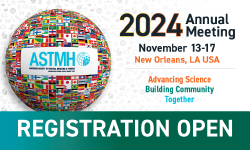| Past two years | Past Year | Past 30 Days | |
|---|---|---|---|
| Abstract Views | 603 | 371 | 39 |
| Full Text Views | 10 | 1 | 0 |
| PDF Downloads | 11 | 2 | 0 |
Attenuated Living Type 1 Dengue Vaccines
Search for other papers by Charles L. Wisseman Jr. in
Current site
Google Scholar
PubMed
Search for other papers by Benjamin H. Sweet in
Current site
Google Scholar
PubMed
Search for other papers by Edward C. Rosenzweig in
Current site
Google Scholar
PubMed
Search for other papers by Ollie R. Eylar in
Current site
Google Scholar
PubMed
Summary
Four attenuated strains of type 1 dengue virus were selected by serial passage into suckling or weanling mice through inoculation by either the intraspinal or intracerebral routes. The strains so selected differed slightly from one another in their capacity to multiply in the brains of weanling mice but all proliferated readily in suckling mouse nervous tissue. None produced neurological signs or histological lesions of consequence in intracerebrally inoculated rhesus monkeys.
Three of the strains produced a recognizable, but highly modified, infection in man, including the development of a mild rash which was consistent on clinical grounds with a very diminutive dengue fever. One strain, the MD-1 strain derived by serial passage in suckling mouse brain, produced an inapparent infection in human subjects, even when as many as 200,000 suckling mouse intracerebral LD50 doses were given. All four strains, including the MD-1 strain, elicited the production of type 1 dengue neutralizing antibodies which began to appear in the second week after vaccination and attained a maximum titer between three and four weeks after vaccination. The MD-1 strain is undergoing further study and evaluation as a potential attenuated living vaccine for the prevention of type 1 dengue fever.
Author Notes
Present address: Merck Institute for Research, West Point, Pennsylvania.
| Past two years | Past Year | Past 30 Days | |
|---|---|---|---|
| Abstract Views | 603 | 371 | 39 |
| Full Text Views | 10 | 1 | 0 |
| PDF Downloads | 11 | 2 | 0 |








